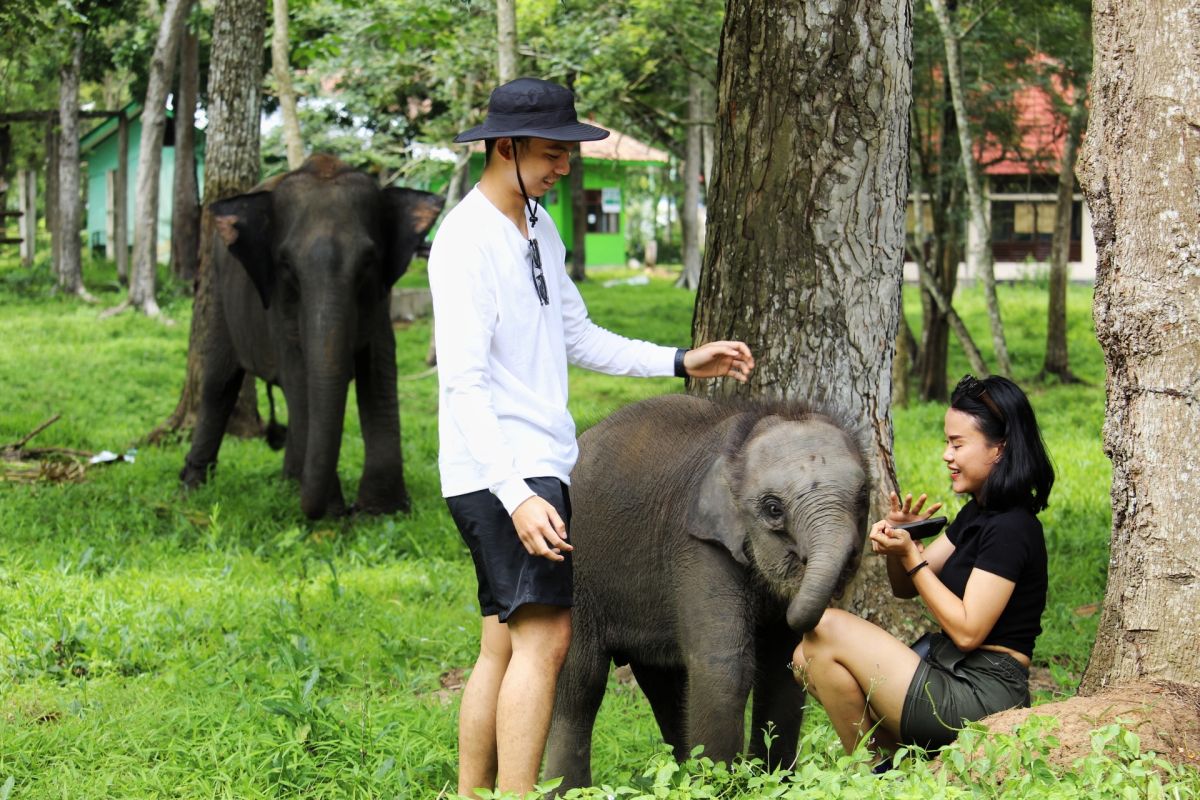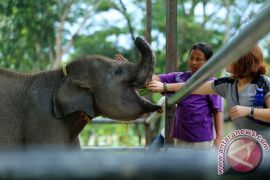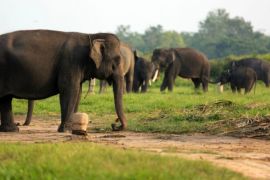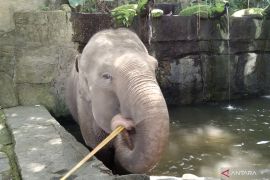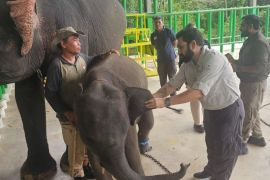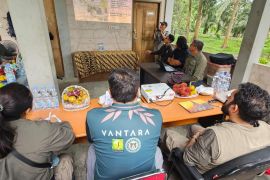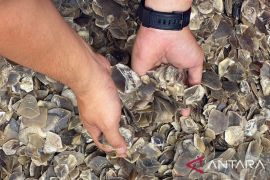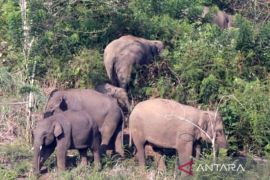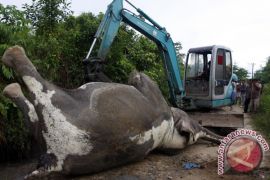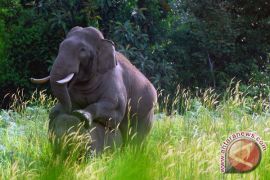The humid atmosphere filled with the smells of wood and soil complement the park that is the habitat of the Sumatran elephant (Elephas Maximus Sumatranus).
Tourists on their way to the Way Kambas elephant training center can witness the herd of elephants that are trained to accompany forest rangers to patrol the area.
Elephants line up neatly to return to the savanna that is their home.
The mahout, or the person tending the elephants, could be seen leading the mammals home.
This sight was quite different as compared to that during the silent COVID-19 pandemic when no tourists passed by to see the Sumatran elephants.
However, through Announcement Number: PG.2106/T.11./TU/HMS/12/2023, the Way Kambas National Park announced that it would receive tourist visits again, starting from December 20, 2023, after the COVID-19 pandemic.
The reopening did not take place long after the birth of a Sumatran elephant calf in the park in East Lampung, Lampung Province, on November 11, 2023. The birth was the second to have taken place that year after a male elephant calf named Yongki was born in April 2023.
The birth of the calf came under the spotlight of various international, national, and local media as well as netizens in cyberspace. They expressed joy over the birth of the Sumatran elephant calf that is a protected animal in the national park.
Sumatran elephant is also the pride of the Lampung people.
Related news: 40 Sumatran rhinos in Way Kambas National Park
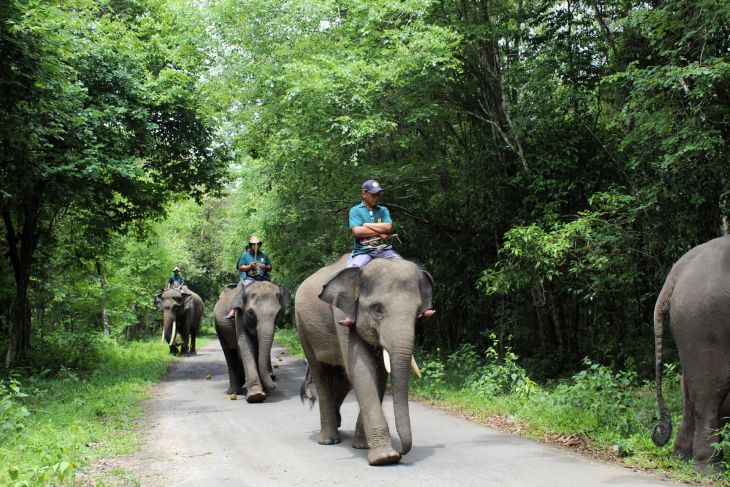 New tour packages
New tour packagesWay Kambas National Park currently has new packages. Visitors can no longer ride elephants and watch elephant attractions like in a circus.
Tour packages currently prioritize education on the conservation of protected animals by taking into account the concepts of sustainability, animal welfare, and community empowerment.
Way Kambas National Park can be reached in two and a half hours via road or 105 kilometers from the center of Bandarlampung City.
This 1,300-square-kilometer conservation park is refreshing and has lush vegetation.
After watching the elephant group patrolling, tourists can park their vehicles at the gate of the elephant training center and use the shuttles provided by the national park.
At the elephant training center, a small elephant named Yongki, with narrow eyes and scanty hair, greeted the tourists cheerfully. It pranced and stomped happily at the sight of the guests who came to its house.
Yongki, born in 2023, is now growing healthier and part of the next generation of Sumatran elephants at the Way Kambas National Park.
Yongki greeted tourists with his small trunk while inviting them to interact, play, and push a little. Moreover, it was curious to look inside the tourists' belongings. This small elephant occasionally came to its mother as though eager to tell her about his experience of playing with the tourists.
Greeting an elephant calf is an attraction for tourists visiting the Way Kambas National Park, as it takes a long time to be able to meet them due to the long regeneration of elephants.
In addition to interacting with the elephants directly, tourists can choose several elephant tour packages, such as bathing elephants for 30 minutes during elephant care hours, namely from 8 a.m. to 2:30 p.m. local time, feeding elephants, and seeing and observing birds around Way Kambas.
Meanwhile, the ticket is priced at Rp5 thousand per pax for weekdays and Rp7,500 per person for holidays.
"Groups of school children or those in groups must inquire from the center first. Meanwhile, you can buy packages for (interacting with) elephants at the co-operative shop, and there will be a guide," a ticket officer, Rahman, explained.
The number of tourist visits to Way Kambas National Park fluctuates. There will be many visitors during the holiday but only a few during the weekdays, as the park attracts tourists with special interests, such as to play with the elephants.
Way Kambas National Park also plans to manage animal conservation tourism by collaborating with surrounding villages, where tourists will be invited to learn about the processing of cassava-based food in the villages.
In the villages, tourists can try trigona bee farming and make ecoprints. The tour will end at the elephant training center.
By empowering buffer villages, tourists can experience life in the villages around the national park that will contribute to the economy of rural communities.
Meanwhile, the Lampung provincial government has designed the integrated conservation tourism concept.
The surrounding village communities are considered to play an important role in maintaining the preservation of the Way Kambas National Park that protects elephants from poaching.
A tourist, Darmawan, said that the concept of tourism in Way Kambas is now different.
"The package is now more like playing, feeding, and bathing, more comfortable (to the elephants)," he stated.
Changes in the Way Kambas' tourism concept make it more friendly to the animals and the environment. Tourists can now greet Sumatran elephants again, albeit in a different way, but the elephants lead a freer and more prosperous existence.
Related news: Promoting wildlife importance through Way Kambas Festival
Editor: Yuni Arisandy Sinaga
Copyright © ANTARA 2024
